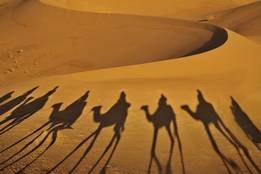cavalcade
noun
cav·al·cade
ˌka-vəl-ˈkād 

ˈka-vəl-ˌkād
1
a
: a procession (see procession entry 1 sense 1) of riders or carriages
b
: a procession of vehicles or ships
2
: a dramatic sequence or procession : series
a cavalcade of natural disasters
Love words? Need even more definitions?
Merriam-Webster unabridged















Share